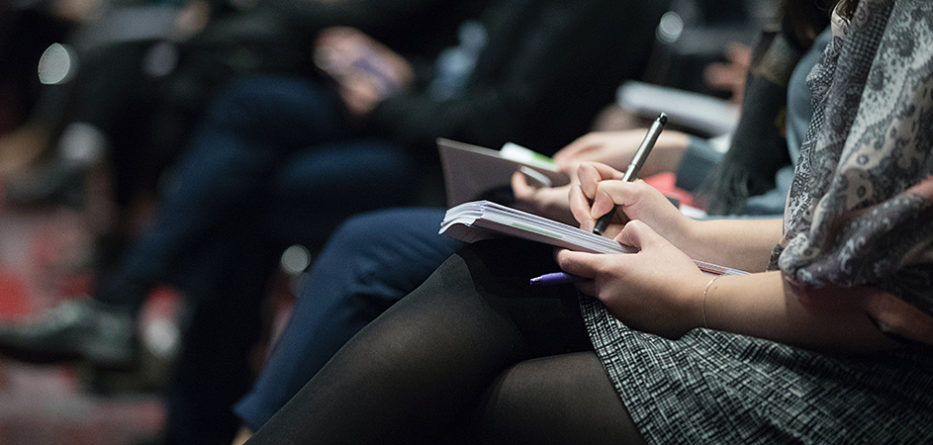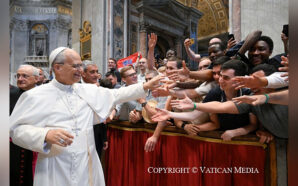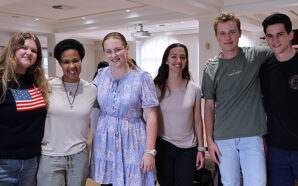16 May is the Vatican’s World Communications Day
When we think of communications, it is easy to focus on the shiny new technology and not on what it is used for. Technology certainly does make a difference to the way in which we think and see our world. In a world where nothing is written, the telling of stories in homes and villages, sometimes for hours on end, is all important. Through it, wisdom is passed down. With the development of alphabets and other forms of writing and later with the invention of print, wisdom, customs, discoveries and stories could be preserved in texts. People became concerned for exact spelling and dates. Radio brought its own changes, as did television with its emphasis on visual communication, and more recently digital communication.
With each change, people wonder what the new ways of communicating will mean. In the most important respects, however, little changes. When we communicate, we still want to say or show something to other people. To do this successfully, we still need to ask ourselves the same questions regardless of the technology we use. We should ask, for example, whether those with whom we speak will understand accurately what we want to communicate to them, whether what we want to communicate is true, and whether our hearers will be the better for hearing it. If our communication, whether by whispering in a friend’s ear, through a worldwide television program, or through social media, does not meet these tests, then our communication is a waste of time or worse.
Changes in the way in which people communicate can have powerful effects and seem to be magical. People who use new technologies can have enormous power over others. In ancient Athens, when all important decisions were made after public discussion, theorists who devised systematised ways of persuading people through public speaking had extraordinary influence in the city. They came to have a bad reputation because many people used their discoveries to persuade without caring whether their arguments were true or not. They were accused of making the worse argument win. People later grew suspicious of high rhetoric and it became less effective.
That cycle has been repeated through history, as preachers, pamphleteers, radio commentators, shock jocks, television pundits and social media influencers have all exploited new communications technology. They were all controversial, many were successful. But the same questions about truth, about hearers’ understanding, and about the benefits or harm of their communication, kept returning. Ultimately the judgment made upon them depended on the answers.
In his yearly messages for World Communications Day, Pope Francis keeps returning to these central questions. He asks particularly whether what is communicated by governments and interested parties is true. That leads him to insist on the importance of journalists in society. Their task is to seek out the truth. He focuses on the truth about people’s lives, especially of those who are poor and oppressed. To see this truth, we need to move outside the company of people with similar views and to go out to meet people in their own worlds.
This is true also of such organisations as Jesuit Social Services, when we speak on behalf of young people who are vulnerable and have acted badly. It is easy to dismiss them as media often do as worthless, losers and no-hopers. Our task is to go out to them, to listen and to see the precious humanity they share with us.
Pope Francis describes the qualities needed for this as curiosity, openness and passion. These are the opposed to cynicism, which assumes that all that is worthwhile has been discovered, and to fixed ideas, to ideologies, and to attempts to control what is communicated. They are about the search for truth. World Communication Day reminds us that truth lies at the heart of communication.
Fr Andrew Hamilton SJ writes for Jesuit Communications and Jesuit Social Services.








